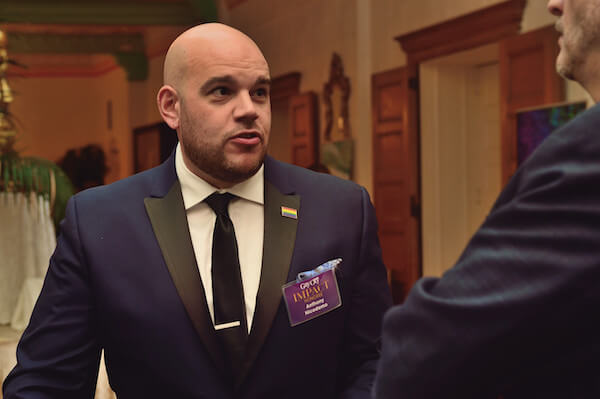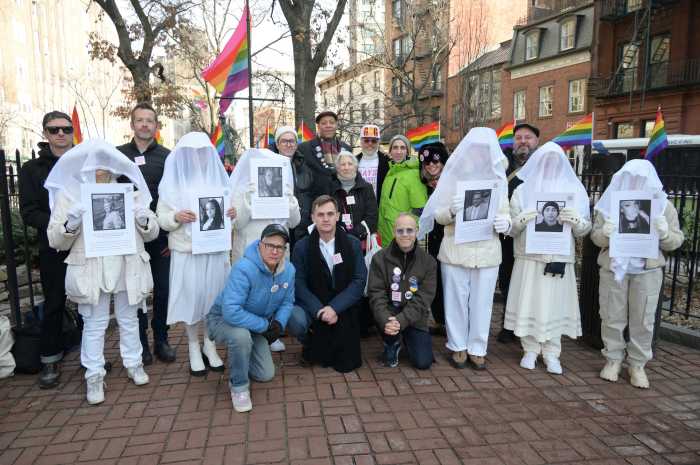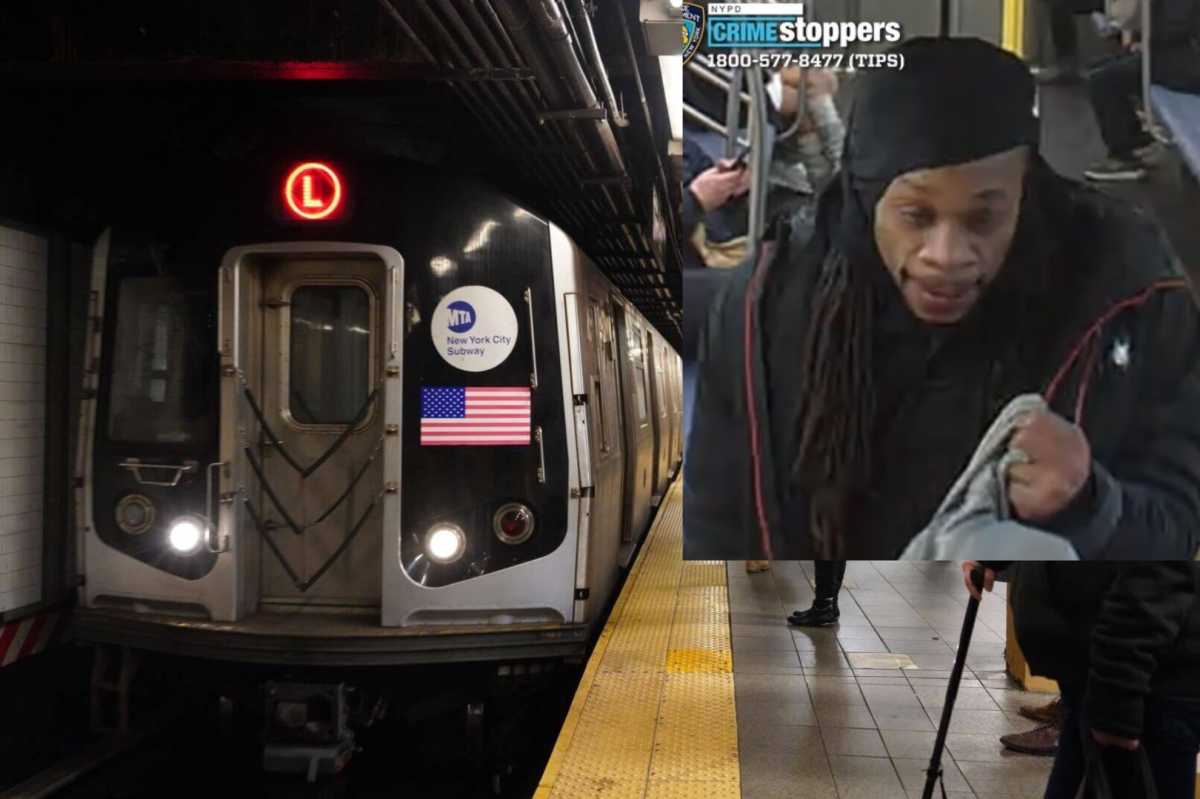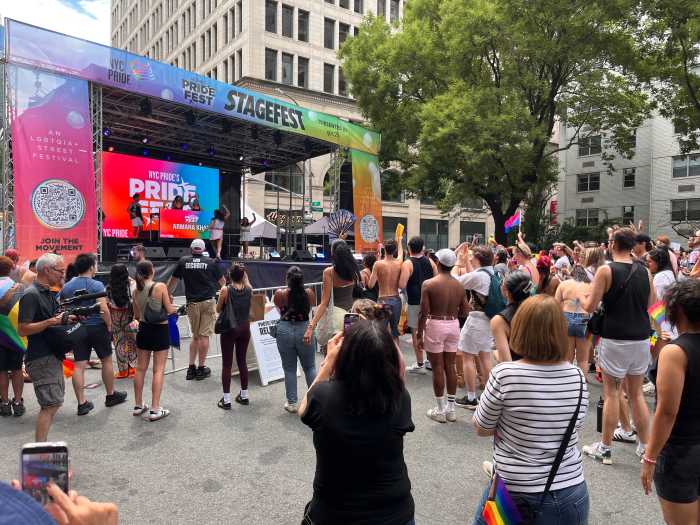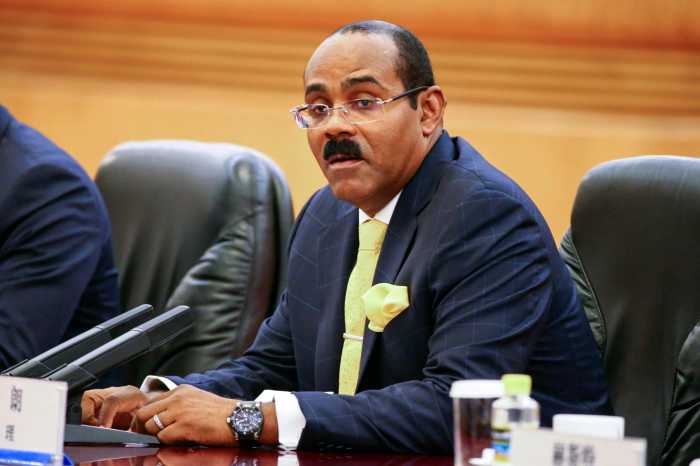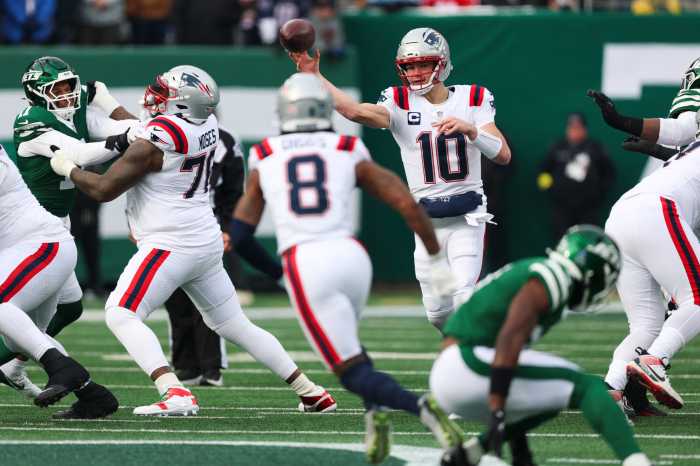Wearing bright orange T-shirts, white shorts, and boxing gloves, the Hep Team will fan out across New York City this summer to promote vaccinations for hepatitis A and B to “knock out” those viral infections among gay and bisexual men.
“A significant number of men who have sex with men still have not been vaccinated,” said Harold S. Levine, national coordinator of the Hep Team program and president of Levine & Partners, at a May 24 press conference held at the Callen-Lorde Community Health Center in Chelsea.
Both forms of hepatitis can be spread through sexual contact, with hepatitis A often resulting from rimming, the practice of oral-anal contact. Hepatis B can be transmitted through condom-less sex and sharing needles or straws used for inhaling drugs. Both can cause serious illness and hepatitis B can result in a chronic infection of the liver and lead to cancer of the liver. The prevalence of both infections is higher among gay and bisexual men than it is in the general population.
The Hep Team, funded by the pharmaceutical company GlaxoSmithKline (GSK), will promote hepatitis vaccinations at Gay Pride events, in clubs and bars, and in an ad campaign that will appear in Chelsea and gay press outlets. It will operate citywide as well as in Westchester and Rockland Counties, on Long Island, and in New Jersey’s Bergen County.
The team will also offer the first shot in a series of three that are administered over six months. GSK makes a product that contains both the hepatitis A and B vaccines that confer long-lasting immunity. Previously, five shots—two for A and three for B—were required over six months to get vaccinated. People who get their first shot from the Hep Team will be referred to their doctor, a city clinic, or Callen-Lorde to get the next two. The Hep Team will also be promoting vaccinations in Atlanta and Los Angeles.
Last year, the Hep Team was piloted in Chicago where it delivered 800 doses of the GSK product in ten weeks. Levine said that the promotional effort resulted in thousands of doses being delivered in doctors’ offices and clinics. GSK noted a large increase in vaccine sales in Chicago compared to cities, or metropolitan statistical areas (MSA), where the Hep Team did not operate.
“It was substantially over our control MSAs,” said Richard K. Page, a product manager in GSK’s vaccines division.
A key issue in the vaccine campaign is ensuring that those people who get their first shot from the Hep Team go on to receive the final two. Levine said that in Chicago the “majority returned” though he could not say what the number was. Generally, 60 to 70 percent of people who get the first shot return for the second and 60 to 70 percent of those who get the second shot return for the third.
People who do not complete the series of three get some protection. While the recommended course is three shots in six months, people can get the second and third shots at any time. People who are HIV-positive should consult a physician before getting the vaccine.
“If we can vaccinate for measles and mumps and stop those epidemics why would we not stop this,” said Jay Laudato, Callen-Lorde’s executive director. “This is something we can do something about.”
The New York City Department of Health and Mental Hygiene is also supporting the Hep Team promotion.
“I think this initiative is a critical component of prevention,” said Maureen Miller, director of HIV prevention at the health department.
gaycitynews.com

